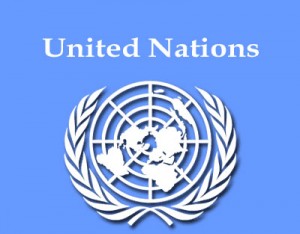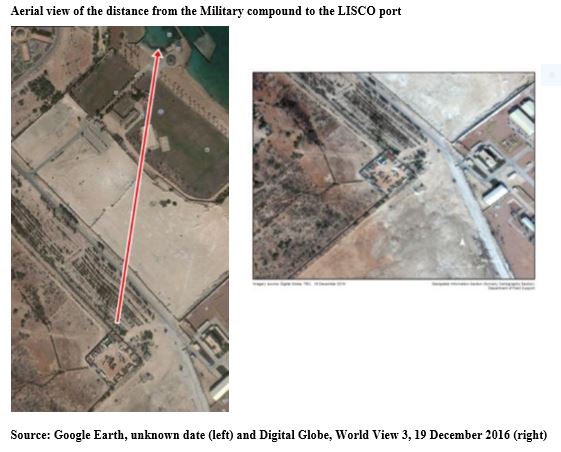By Sami Zaptia.

London, 10 June 2017:
The UN Libya Experts Panel set up by UNSC resolution 1973 in 2011 has released its final report to the Security Council. The report highlights the arms sanctions regime as well as – often documented – domestic and international corruption, crime, smuggling, external intervention, the destabilizing role of militias and human rights violations.
The 299-page report summary says that the UN Panel’s monitoring of the political transition in Libya has focused on the incomplete implementation of the Libyan Political Agreement in the absence of its endorsement by the House of Representatives.
‘‘This has undermined the legitimacy of the Government of National Accord, nominated by the Presidency Council. The rival Prime Ministers, Abdallah al-Thinni and Khalifa al-Ghweil, continue to challenge the leadership of the country by the Chair of the Presidency Council, Fayez al-Serraj. The Presidency Council has also had great difficulty in implementing social and economic policies, further strengthening the armed and unarmed opposition to its authority.
To overcome the political stalemate, the United Nations Support Mission in Libya drafted a new road map in October 2016 to amend the Libyan Political Agreement. This led to a regional dialogue initiative sponsored by Algeria, Egypt and Tunisia. However, regional divisions continue to constitute an obstacle to a political solution in Libya.
The political crisis has been further exacerbated by escalating armed conflict. In spite of the liberation of Sirte and segments of Benghazi from Islamic State in Iraq and the Levant, the overall security situation in Libya has deteriorated. Indicative of the insecurity is the growing competition in Tripoli between Misratah- and Tripoli affiliated armed groups, which has undermined the authority of the Presidency Council and threatened the safety of the capital’s residents. Military operations by the Libyan National Army, the Benghazi Defence Brigades and Misratan armed groups in the south and the oil crescent have exposed local populations to increasing violence, including through air strikes.
Further threats to security documented by the Panel have included the recruitment of foreign mercenaries by armed groups and the persistent activity of extremist movements. Armed groups, some of which have received a mandate or at least recognition from the House of Representatives or the Presidency Council, have not been subject to any meaningful judicial control. This has further increased their involvement in violations of human rights, including kidnappings, arbitrary detentions and summary executions.
Cases investigated by the Panel include abuses against Libyan residents of Tripoli and Benghazi, prisoners of war and migrants. The Panel documented several instances in which armed groups were involved in actual or potential violations of the arms embargo. These groups’ continuing access to military equipment and related material is also reflected in the escalation of armed conflicts, notably through air strikes. In that respect, the Panel has documented how armed groups from eastern Libya and Misratah have multiplied their air force capacity through transfers of materiel, the refurbishment of previously unserviceable aircraft and the expansion of military airbases. The foreign support for both factions is also highlighted.
Furthermore, the Panel found evidence of several deliveries, in violation of the arms embargo, of what is often described as non-lethal materiel. The deployment and use of such materiel in the Libyan context has significantly increased insecurity and has undoubtedly led to additional casualties. This is notably the case for (armoured) vehicles and electronic interception equipment.
In the absence of arms and ammunition management capacity, the risk of diversion remains a major concern, justifying the need for a robust arms embargo. Libyan armed groups engage in arms trafficking both within the country and across its borders, and Libya remains an important hub for illicit arms flows to neighbouring countries. The Panel has documented arms seizures in the Niger and Tunisia, while the lack of access to seizures in other countries remains a problem.
The Panel finds that the key financial and economic institutions of Libya remain divided and suffer from a lack of oversight and cases of misappropriation. The Presidency Council has been divided over the organization of and appointments in several institutions, and its decisions have been challenged. As a consequence, the loyalty of staff is still divided between the competing authorities, which have each tried to make their own appointments. The divisions continue to threaten the stability of Libya, as shown by the controversy over Central Bank of Libya policies in Tripoli and several unilateral actions taken by its eastern branch.
The Panel has identified rival managements and their political backers, who continue to attempt to strengthen their position through various strategies, including legal action and support from armed groups. In Tripoli, the interference of armed groups with the management and finances of institutions such as the Libyan Investment Authority and the Libyan Post, Telecommunication and Information Technology Company is worrying and untenable.
In contrast to these negative developments, the country’s oil sector has stabilized. The warring parties in the oil crescent have largely refrained from damaging oil installations, and they have consistently given authority over the terminals to the National Oil Corporation management, even though control over the region has changed hands repeatedly. Unfortunately, and despite significant efforts by both their managements, the implementation of an agreement to reunite the eastern and western National Oil Corporations failed. Nevertheless, the efforts have resulted in increased oil production.
The continuing division of the National Oil Corporation will likely lead to renewed attempts to illicitly export crude oil. Sanctions under resolution 2146 (2014) were successfully implemented on one occasion. Meanwhile, the eastern National Oil Corporation has made a first attempt to smuggle a shipment of oil derivatives out of Libya. Armed groups and criminal networks continue to exploit different sources of financing, such as the smuggling of migrants and fuel. The Panel has identified networks along the western coastline, which are active in both.
Several investigations on the asset freeze show the complexity of the finances available to some listed individuals, the beneficiary ownership of which is hidden behind numerous front men and front companies. They also show that transactions in favour of listed individuals are sometimes handled through large sums of cash. In addition, the Panel investigated stolen Libyan assets that were under the control of a listed individual, or at risk of misappropriation, or both. The identification and possible recovery of all these funds will require significant resources and a dedicated effort. This will require the empowerment of Libyan investigators through an indisputable mandate from an uncontested authority’’, the report summary concluded.








